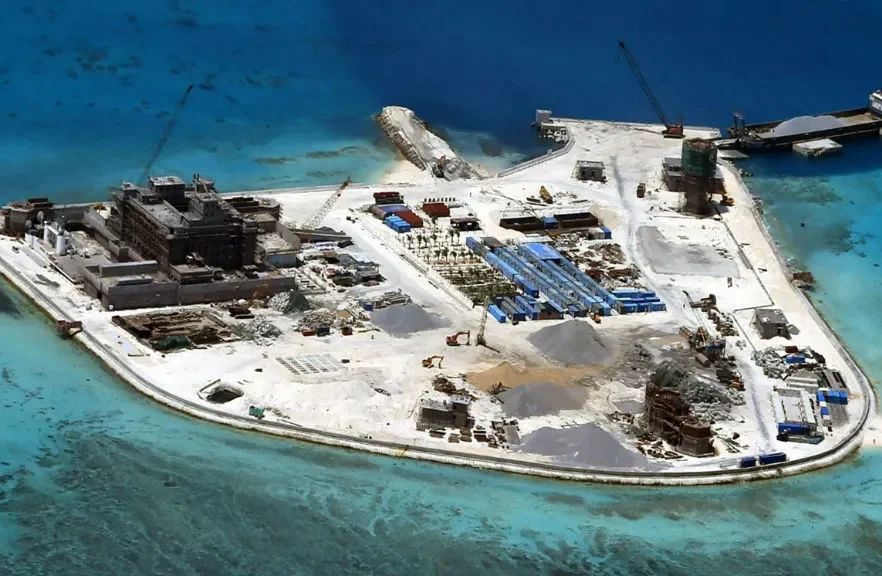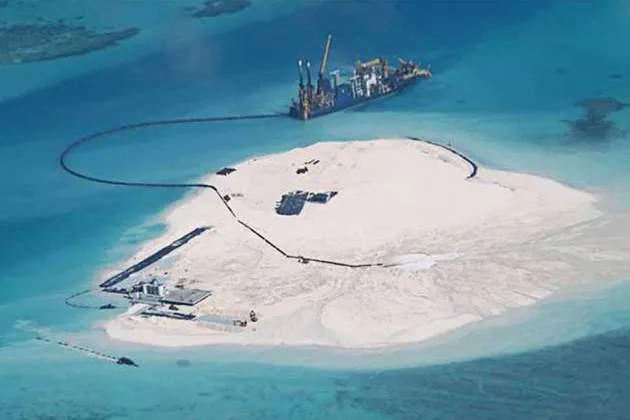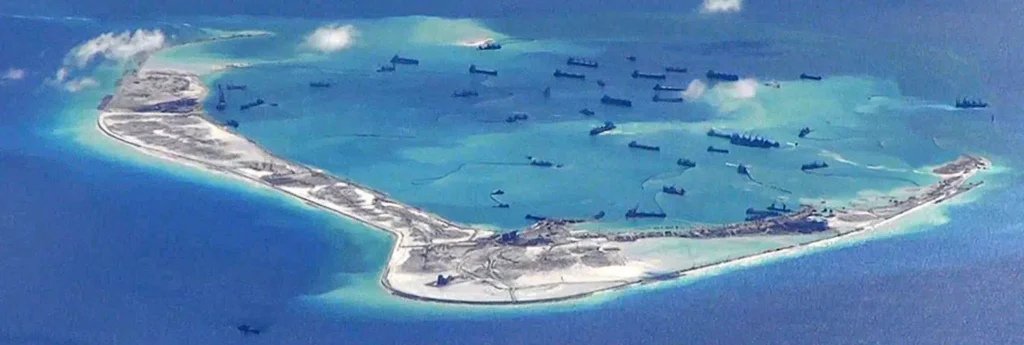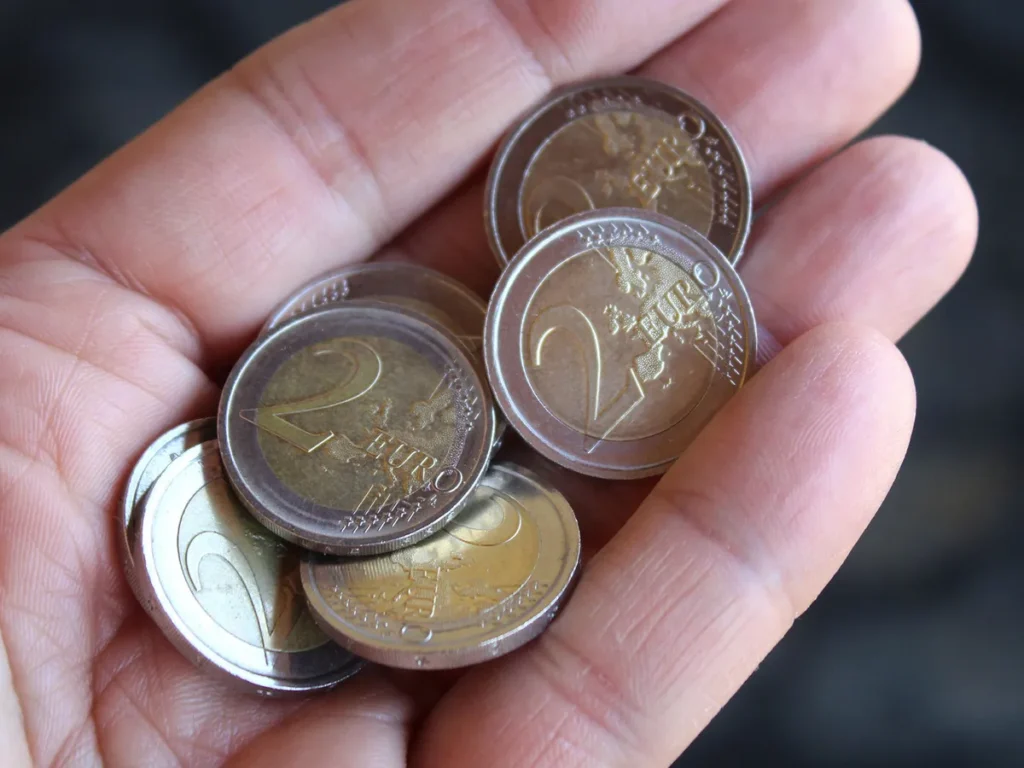Philippines government prevented the construction of an artificial island

The Philippines government prevented the construction of an artificial island in the South China Sea, which has raised tensions between the two countries.
Philippine authorities said Saturday that their forces have prevented the Chinese Coast Guard from building an artificial island in the South Sea.
An artificial island on an atoll in disputed waters in the South China Sea near the Philippine island of Palawan.
In a statement, the Philippine Presidential Communications Office said the Philippine Coast Guard has prevented Chinese authorities from building an artificial island in the South China Sea, known as Escoda to the Filipinos and Xianbin Jiao to the Chinese.
“The mere fact that the Philippine Coast Guard has prevented the Chinese government from pursuing its claim in Sabina Atoll means we are still effective. The (Philippine) state has sovereign rights over those waters,” said Philippine Coast Guard spokesman Jay Tarriela.
The spokesman said the BRP vessel Teresa Magbanua has been in the waters around Sabina for 26 days to prevent China’s “illegal activities”.
But they have added that they are awaiting the arrival of a Japanese ship to assist in surveillance efforts to prevent the construction of an artificial island in the South China Sea.

Construction of an artificial island in the South China Sea: a sign of war
According to the Philippine channel GMA, two other Philippine ships, the BRP Cabra and BRP Malabrigo, have also been patrolling in waters near Sabina Atoll.
Philippine authorities accused Beijing of destroying corals which they then use as building material to develop artificial islands.
Sabina Atoll is located in the Spratly Archipelago, some 123 nautical miles west of Palawan, and is claimed by the Philippines, China, Taiwan and Vietnam.
In recent months, clashes between Chinese and Philippine vessels have multiplied in the South China Sea, mainly around Scarborough and Second Thomas atolls, where Filipino fishermen go to fish.
READ HERE: APPEALED FOR RECORDING ANIMAL PORN VIDEO IN AUSTRALIA.
The Philippine authorities claim that the atolls are within 200 nautical miles (370 kilometers) of its economic exclusivity zone, which under international law entitles it to exploit the resources, even though they are considered international waters.
Beijing claims historical reasons for its claim to almost the entire South China Sea, through which some 30% of global trade flows and which is home to 12% of the world’s fishing grounds, as well as oil and gas deposits.
The construction of an artificial island in the South China Sea would be a sign of territorial appropriation.
The Philippine National Security Council called for the “immediate” expulsion from the country of the Chinese diplomats “responsible” for the leak of an alleged conversation between the two countries about their South Sea disputes, which Beijing called “reckless”.
“Those individuals at the Chinese Embassy responsible for violating Philippine laws (…) should be expelled from the country immediately,” stresses a statement from Philippine security adviser Eduardo M. Año.
The advisor asks the Asian archipelago’s foreign department to take “appropriate measures” against Chinese diplomats who claim to have recorded an alleged telephone conversation between a member of their legation in Manila and a Philippine defense official.
China’s artificial islands are a key part of its expansionist strategy.
Meanwhile, the world powers of the West are keeping a close eye on these mega-projects.
These enclaves built over the sea came out of nowhere in the last six years and have greatly tipped the balance of power at sea for China in what is a pillar of global international trade.
Since 2014, the construction of an artificial island in the South China Sea, part of a project founded on rocks or reefs near the surface of the water at low tide.







